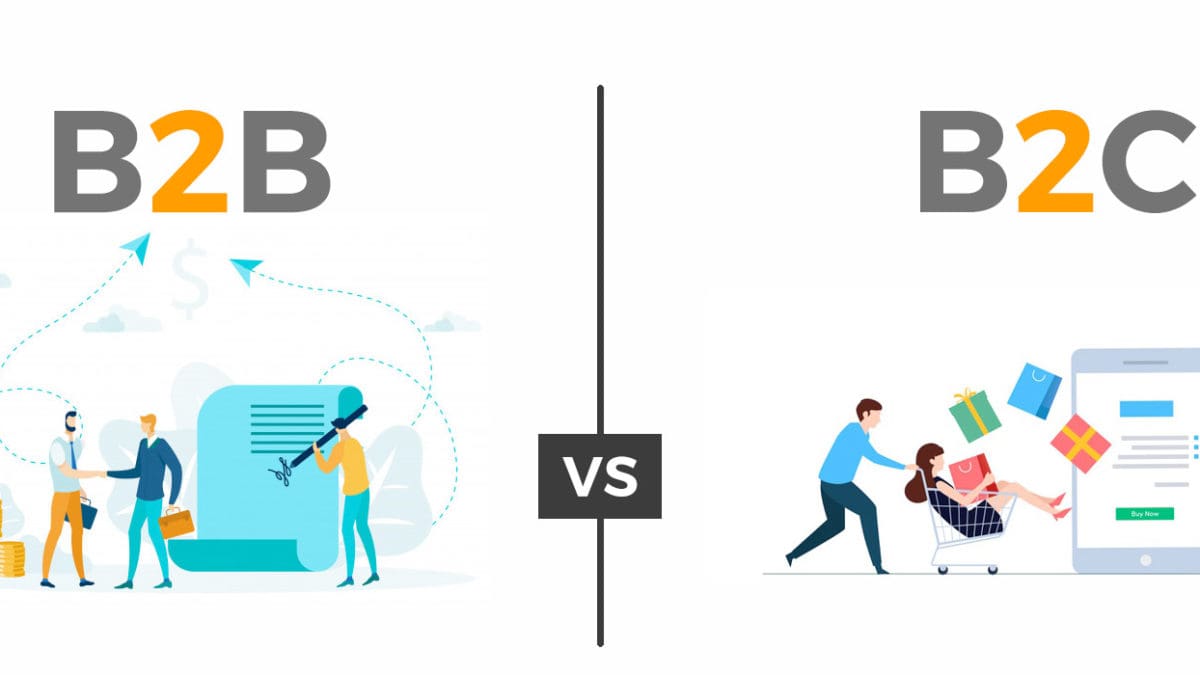Marketing for B2B (Business to Business) and B2C (Business to Customers) companies share a similarity in principle; the objective in both cases is to obtain the best result of the marketing campaign. However, although the principle is similar, marketing for both types of companies has its unique approach due to their differences in nature.
To develop a solid marketing campaign that will ensure the success of your business, you need to isolate the differences between B2B and B2C marketing. That’s because you’ll only get the best results if you employ the best marketing strategies suited to your type of business.
And while both are businesses, selling to customers is different from selling to other businesses. Therefore, marketing is expected to be different as well. That said, this post will point out the main differences between B2B and B2C marketing. Let’s get to it without further ado.
Relationship with the consumer
In B2B, the relationship between brands and their customers is usually long-term. This affects the type of marketing done in B2B as the marketing strategies employed would be tailored to last for a long time.
The campaign cannot be easily changed, considering that the brand’s goal is to ensure a lasting relationship with its customer. B2B marketing aims to increase customer trust and engagement with the brand they are dealing with. A trusting customer is a sign of a strong relationship.
An example is a relationship between a construction company that works with a real estate company. The agency always needs to build buildings and the main service of the construction company is to build buildings.
The company’s B2B marketing campaign would be to ensure a long-term relationship with the agency by sending them emails and even signing them up for cheaper offers. This would allow them to build the agency for years to come.
In B2C, the customer’s relationship with the brand is usually not long-term. Brands use B2C marketing to generate short-term value at an efficient rate. That’s why B2C marketing strategies, messages, and goals change from time to time to drive more sales.
B2C marketing is constantly taking new forms because customer loyalty to a brand is not long-term. This increases the need to redirect their attention to the brand through B2B marketing.
An example is an online shopping platform that often runs different marketing campaigns like scavenger hunts. They do this only to prevent poaching of clients. The shopping platform continues to run campaigns frequently in different forms to ensure buyer interest and loyalty.
Nature of content
The nature of the marketing message is more detailed and educational in B2B marketing. B2B customers make logical and informed decisions and as such demand full details of what they are purchasing.
That’s why B2B marketing provides comprehensive details about the brand’s overall competition, such as experience, B2B analytics, results, and achievements.
The website structure, emails, advertisements, social media posts, and blogs used in B2B marketing are technical and professional in nature. B2B marketing builds customer trust in the brand by showing that it has carved out a niche for the value it offers rather than beating around the bush.
The language used in marketing content is professional and consists of terminology that relates to customers and the industry in general. Brands use this style of language to convince customers that they know their field well and understand their needs.
B2C marketing, on the other hand, follows the marketing funnel to acquire customers. The nature of the messages is emotional and fun; they are created to appeal to customers’ emotions rather than logic.
B2C marketing brands make use of Buyers’ Persona as part of their strategy to understand and engage customers. Most of the time, people buy items that they don’t currently need, but want, because of the emotional benefit.
Brands use B2C marketing to capitalize on customers’ emotional irrationalities to make sales. The language used in marketing messages is more personal and fun in B2C than in B2B and does not include professional terminology.
This simpler language style is used in B2C marketing, it makes potential customers interested and buy your products or services.
Decision-making process
The decision process for B2B customers is time-consuming. Decisions to buy from a brand are made by board members or teams and this goes through many processes. The team/board conducts research on the brand they wish to sponsor in order to make the best decisions.
B2B marketing is structured to educate the potential customer about the brand of interest and its ability to meet customer demands. Many factors can influence the opinion of the team/management during their long decision-making process.
Thus, B2B marketing eliminates all possible doubts that the board/team may have during and after decision-making.
In B2C marketing, the decision-making process is brief. While it takes some time to convince a customer to buy a product, it is similar to marketing to B2B customers.
Customers typically decide to buy a good or service quickly, even if they don’t buy the product or use the service right away. This could be due to financial constraints or other factors; however, if they do decide, they will likely end up sponsoring the brand.
Once you realize how fundamentally different B2B and B2C marketing are, you can maximize the effectiveness of your campaign. If you found this article useful, please share it with your community.
